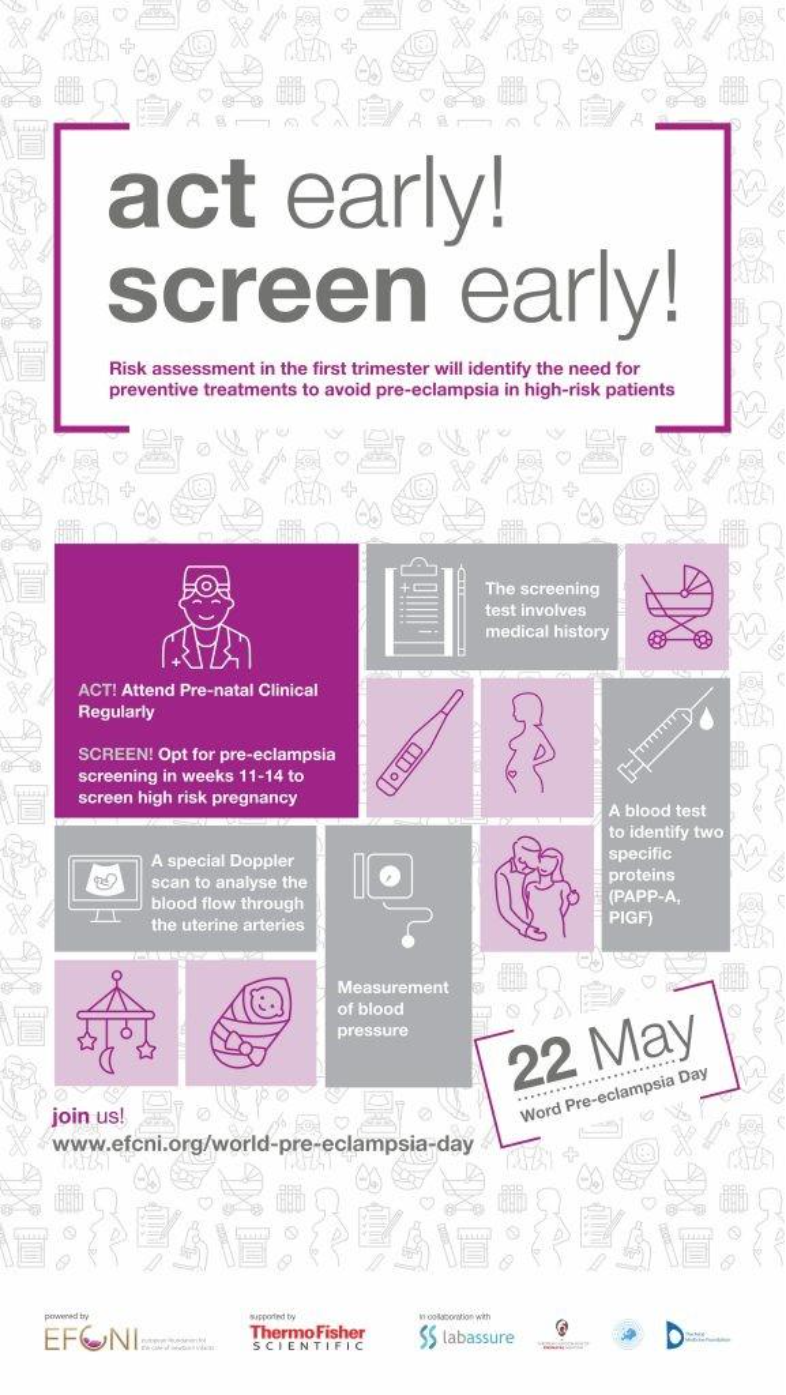World Preeclampsia Day – 22nd May
Understanding Preeclampsia & Treatment Options
Every year on 22nd May, World Preeclampsia Day is observed to raise global awareness about preeclampsia, a serious pregnancy complication that affects more than 10% of pregnancies worldwide. It remains one of the leading causes of maternal and infant mortality, especially in developing countries where timely diagnosis is often missed.

What is Preeclampsia?
Preeclampsia is a pregnancy-related disorder characterized by:
It usually develops after 20 weeks of pregnancy and, if left untreated, can lead to severe complications for both mother and baby, including:

Importance of Early Screening & Diagnosis
Early screening for preeclampsia is critical to reducing risks. Timely detection allows doctors to:
At LABASSURE, we provide advanced screening tests for preeclampsia, helping clinicians identify high-risk pregnancies and take preventive action.

Risk Factors for Preeclampsia
Women may be at higher risk if they have:
Knowing your risk profile helps in early prevention and better management.

Treatment & Management Options
Currently, the only definitive treatment for preeclampsia is delivery of the baby. However, depending on the severity and stage of pregnancy, doctors may recommend:
For high-risk pregnancies, regular follow-up and lab monitoring are essential to safeguard maternal and fetal health.

Why World Preeclampsia Day Matters


Key Takeaway
Preeclampsia is preventable and manageable if detected early. On this World Preeclampsia Day, let’s spread awareness about screening, timely diagnosis, and treatment options to ensure safer pregnancies and healthier mothers and babies.
At LABASSURE, we are committed to providing advanced maternal screening services that empower clinicians and expecting mothers to make informed decisions.

📧 For more information on Preeclampsia Screening and Diagnosis, contact us at info@labassure.com
🔗 Learn more about our Preeclampsia screening services »